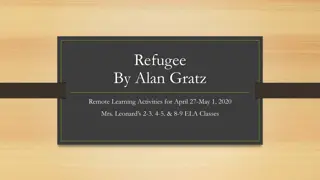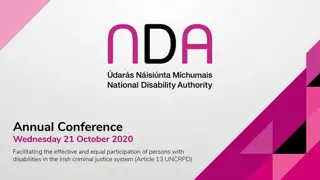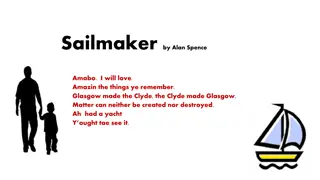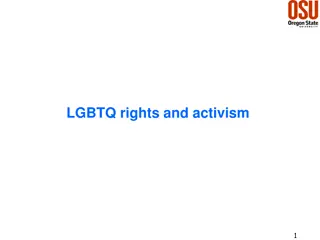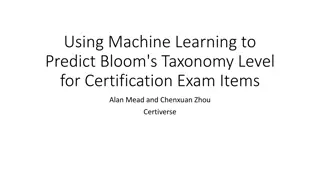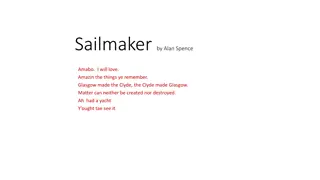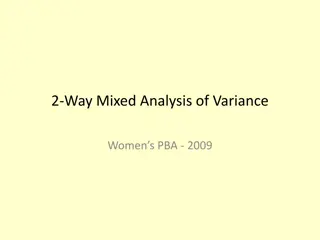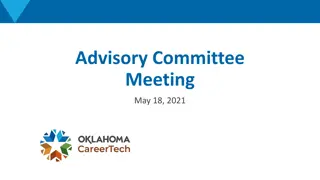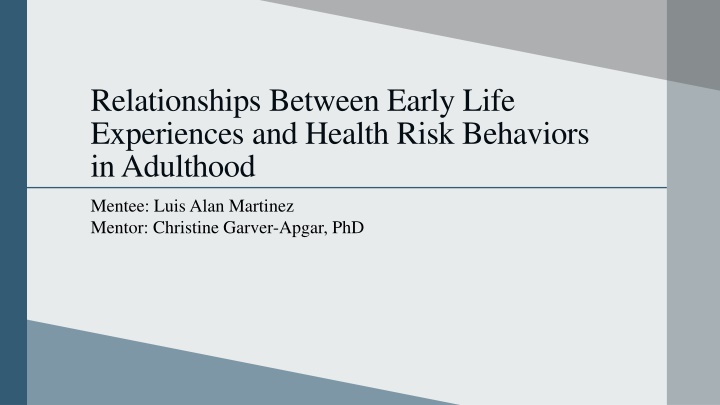
Impact of Childhood Experiences on Adult Health Behaviors
Explore the relationships between adverse and benevolent childhood experiences with adult health behaviors in a study conducted by Luis Alan Martinez under the mentorship of Christine Garver-Apgar, PhD. The research delves into the significance of ACEs and BCEs, with a hypothesis focusing on sleep quality, dietary habits, physical activity, and nicotine use. The study aims to uncover how different childhood experiences influence health behaviors and if these relationships vary based on gender.
Download Presentation

Please find below an Image/Link to download the presentation.
The content on the website is provided AS IS for your information and personal use only. It may not be sold, licensed, or shared on other websites without obtaining consent from the author. If you encounter any issues during the download, it is possible that the publisher has removed the file from their server.
You are allowed to download the files provided on this website for personal or commercial use, subject to the condition that they are used lawfully. All files are the property of their respective owners.
The content on the website is provided AS IS for your information and personal use only. It may not be sold, licensed, or shared on other websites without obtaining consent from the author.
E N D
Presentation Transcript
Relationships Between Early Life Experiences and Health Risk Behaviors in Adulthood Mentee: Luis Alan Martinez Mentor: Christine Garver-Apgar, PhD
Background Information Adverse Childhood Experiences (ACEs) Linked to higher prevalence of a range of chronic diseases, as well as mental disorders Benevolent Childhood Experiences (BCEs) May act as a protective factor during development, and are associated with more favorable developmental trajectories
ACEs BCEs
The Current Project Hypothesis: As exposure to ACEs and other adverse experiences increases and exposure to BCEs decreases, sleep quality, healthy dietary behaviors, and physical activity will significantly decrease, additionally, the age of first reported nicotine use will also decrease. ACEs Healthy Behaviors BCEs Healthy Behaviors Significance: Gaps in the literature BCEs and health behaviors Expanding on broader range of adverse childhood experiences Sex differences Future Interventions
What are we asking? Question 1: How, and to what extent, are different types of childhood experiences (both favorable and adverse) associated with adult health behaviors? Question 2: Do the above relationships differ between men and women?
Methods/Measures Procedure: Online surveys (Research Match) Measures: Early Life Experiences Adverse Childhood Experiences Survey (ACE) Childhood Unpredictability (QUIC) Childhood SES Childhood Violence Benevolent Child Experiences (BCE) Health Behaviors Physical Activity: International Physical Activity Questionnaire (IPAQ) Sleep: Pittsburgh Sleep Quality Index (PSQI), Sleep Related Impairment (PROMIS-SF) Dietary Behaviors: Adapted from the Family Nutrition and Physical Activity survey (FNPA) Tobacco: (Lifetime user Yes/No, Age of first use)
Participant Demographics Number of Participants 161 Male 44.7% Female 54.8% Not Listed/Not Disclosed 1.8% White/Non-Hispanic 90.7% 146
Sex Differences Sex differences: Main Effects Compared to men, women reported higher levels of unpredictability during childhood, poorer sleep quality and more sleep impairment. Men reported marginally higher levels of nicotine use No other statistically significant findings for childhood experiences or health behaviors No evidence of sex differences
Limitations Limitations Limited generalizability Small sample size (N=161) Highly educated sample (70% held 4-year degrees) Primarily white sample (91% White) Self-selected and self-reported format
Future Directions Future Directions Further exploration of unique childhood experiences Neurodevelopmental mechanisms (stress functioning, emotional regulation, cognitive adaptations) Figuring out the WHY Further exploration of potential sex differences
Acknowledgements and Affiliations Dr. Christine Garver-Apgar Dr. Douglas Novins, Chair of PMHI Dr. Neill Epperson, Chair of Department of Psychiatry Dr. Dominic Martinez, Dir. Office of Inclusion and Outreach, CCTSI Lily Luo Emmaly Perks The Psychiatry Undergraduate Research Program and Learning Experience (PURPLE), Research Education Core, Psychiatry Research Innovations (PRI) Department of Psychiatry, University of Colorado Anschutz Medical Campus
References 1 Duffy, K. A., McLaughlin, K. A., & Green, P. A. (2018). Early life adversity and health-risk behaviors: Proposed psychological and neural mechanisms: Early life adversity and health-risk Academy of Sciences, 1428(1), 151-169 2 McLaughlin, K.A. (2016). Future directions in childhood adversity. Journal of Clinical Child Adolescent Psychology and Youth Psychopathology. 45, 361 382. 3 Campbell, J. A., Walker, R. J., & Egede, L.E. (2016). Associations between adverse childhood high-risk behaviors, and morbidity in adulthood. American Journal of Preventive 4 Lovallo, W.R. (2013). Early life adversity reduced stress reactivity and enhances impulsive behavior: implications for health behaviors. International Journal of Psychophysiology, 90, 8-16. 5 Del Giudice, M., Ellis, B.J., Shirtcliff, E.A. (2011). The adaptive calibration model of stress responsivity. Neuroscience Biobehavioral Rev, 35:1562-92. 6 Trickett, P.K., Gordis, E., Peckins, M.K., Susman, E.J. (2014). Stress reactivity in maltreated and comparison male and female young adolescents. Child Maltreatment, 19:27- 7 O Leary, M.M., Loney, B.R., Eckel, L.A. (2007). Gender differences in the association between psychopathic personality traits and cortisol response to induced stress. Psychoneuroendocrinology, 32:183-191. 8 Lee, R. D., & Chen, J. (2017). Adverse childhood experiences, mental health, and excessive alcohol use: Examination of race/ethnicity and sex differences. Child Abuse & Neglect, 69, 40-48 9 Merrick, J. S., Narayan, A. J., DePasquale, C. E., & Masten, A. S. (2019). Benevolent childhood experiences (BCEs) in homeless parents: A validation and replication study. Journal of Family Psychology, 33(4), 493- 498. behaviors. Annals of the New York experiences, Medicine, 50(3), 344-352.



